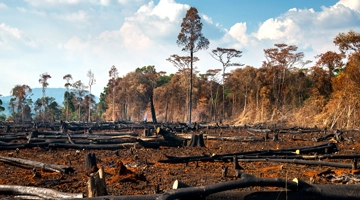 https://www.3keel.com/wp-content/uploads/2025/11/sf_webinar1.webp
200
360
Carole Scott
https://www.3keel.com/wp-content/uploads/2023/04/3keel_logo-1.png
Carole Scott2025-11-20 11:42:492025-11-20 11:44:49New 3Keel webinar: Addressing deforestation
https://www.3keel.com/wp-content/uploads/2025/11/sf_webinar1.webp
200
360
Carole Scott
https://www.3keel.com/wp-content/uploads/2023/04/3keel_logo-1.png
Carole Scott2025-11-20 11:42:492025-11-20 11:44:49New 3Keel webinar: Addressing deforestationCASE STUDY DEFRA / DESNZ
Transforming agricultural climate action: 3Keel defines three principles to tackle scope 3 emissions
Designing Best-Practice Principles for ‘Within Value Chain Mitigation’
In January 2025, 3Keel published a pioneering report to help organisations address one of the most complex and impactful areas of climate mitigation: greenhouse gas (GHG) emissions from forest, land and agriculture (FLAG). Funded by the UK’s Department for Energy Security & Net Zero (DESNZ) and the Department for Environment, Food & Rural Affairs (Defra), the report outlines three guiding principles for “Within Value Chain Mitigation” (WVCM), a strategy to reduce Scope 3 emissions within agricultural supply chains.
The report offers practical tools for climate mitigation and promotes wider resilience in ecosystems, farming communities, and landscapes.
The challenge
Organisations with agricultural supply chains are under growing pressure to meet science-based climate targets. They are also under pressure to build better supply chain relationships, and to increase the resilience of farming businesses and the agricultural supply chain. Yet scope 3 emissions remain the hardest to quantify, influence, and reduce. These emissions originate far upstream in the value chain, often among dispersed farming communities, and intersect with economic, ecological, and social complexities.
There is a clear need for evidence-based, actionable guidance to support sustainability leaders in delivering meaningful GHG reductions while supporting farmer livelihoods and nature-based co-benefits.
3Keel’s approach
3Keel consultants brought an in-depth understanding of the complex landscape of science- based target setting and accounting guidance to this work, particularly in relation to agricultural emission reduction and removals. Our understanding of how this impacts businesses is vital to being able to translate and apply the principles.
We applied a systems-based approach, collaborating closely with an expert Advisory Group from across the supply chain and wider sustainability community. The research process included:
- Three stakeholder engagement workshops, featuring voices from retail, farming, NGOs, and certification bodies
- One-on-one interviews with farmers and other key actors in supply chains, such as UK beef and Ghanaian cocoa
- A focus on both policy alignment and practical implementation, with global relevance despite a UK policy context. We included background on how WVCM was aligned with voluntary UK frameworks and principles on robust climate action.
The result is a framework that balances scientific rigour with real-world applicability. The report is framed particularly in the context of businesses who are just starting out in this area and are looking to get to grips with the steps that they need to take.
Collaborative Leadership
The work was informed by an engaged and diverse Advisory Group, including representatives from:
WWF, WBCSD, Ruscombe Farm Partnership, Lloyds Banking Group, Conservation International, Soil Association Exchange, Yeo Valley, World Resources Institute, Sustainable Food Trust, and Nestlé UK & Ireland
Key findings: three principles of effective WVCM
3Keel’s report outlines three core principles that underpin high-quality Within Value Chain Mitigation efforts:
- Pre-competitive collaboration enhances impact
By working together before the point of market competition, organisations can pool resources, align strategies, and drive system-wide change on the ground. - Prioritise farmer resilience and fair reward
Successful WVCM projects must centre the needs and realities of farmers; offering stability, fair incentives, and support in transitioning to sustainable practices. - Monitoring, reporting, and verification must be robust yet proportionate
MRV systems need to ensure credibility and transparency but must also be feasible for all actors in the chain, including smallholders and low-capacity organisations.
These principles are accompanied by detailed recommendations and practical guidance, making the report a hands-on tool for sustainability professionals, supply chain managers, and investors alike.
Real-world scenarios: cocoa and beef
The report brings the principles to life through in-depth scenarios from two key commodities:
UK Beef: demonstrates the challenges of methane mitigation, land management incentives, and farmer engagement
Ghanaian Cocoa: highlights issues of deforestation, certification, and smallholder dynamics in tropical agricultural systems
These case studies illustrate both the diversity of supply chain contexts and the universal applicability of the WVCM principles.
Industry impact and reception
The publication marks a milestone in the shift toward holistic climate action in agri-food systems. It encourages organisations to move beyond narrow carbon metrics and embrace a wider suite of environmental and social outcomes, from biodiversity to rural wellbeing.
We launched the report on 6 May in collaboration with Defra and DESNZ. With attendees from across government, as well as corporate and NGO sectors, Catherine McCosker and Emily Scott from our Agriculture & Landscapes team presented guidance on how to design and implement effective Within Value Chain Mitigation (WVCM) interventions that work for farmers, corporates and the climate.
The launch helped to identify opportunities for government support and areas for organisations to forge ahead with WVCM as a proof of concept, sparking conversations about WVCM in the context of green finance and starting ideas for collaboration around the development of WVCM projects.
“This report provides clear and robust guidance for organisations who want to build and enhance supply chain relationships to reduce or remove carbon in their value chain,” said Emily Scott, Senior Consultant at 3Keel.
“It’s clear that we’re seeing a shift in thinking across sectors to a more holistic approach,” added Megan MacGillivray, Consultant at 3Keel. “The same mechanism can deliver multiple benefits — not just for emissions, but for nature and people, too.”
Looking ahead
As organisations across the globe grapple with how to tackle scope 3 emissions, this report provides a credible and actionable starting point. It empowers decision-makers to go beyond compliance toward integrated, landscape-level solutions that truly transform the agri-food system.





